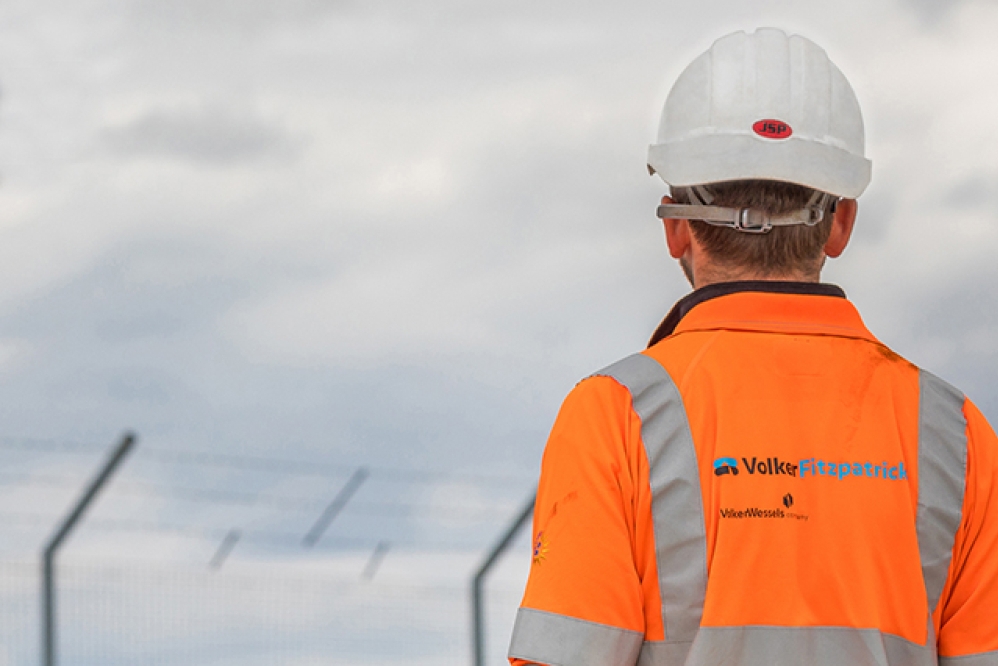CLEAN POWER AND INCREASED EFFICIENCY FROM JCB POWERPACKS
JCB is expanding its electric Powerpack range, with the addition of three larger models, delivering a 400V, three-phase output. JCB is building upon the success of its two 230V single-phase electric powerpacks, with the launch of three new 400V three-phase units. When used in conjunction with existing on-site power generation equipment, JCB battery powerpacks allow customers to reduce their dependence on diesel-powered generators when electrical demand is low. This increases efficiency, and reduces fuel consumption and exhaust emissions, for a cleaner, lower-carbon worksite. In the events industry, diesel generators can create disruptive noise and exhaust emissions, while remote applications such as communication masts require very little power, though their location makes a diesel generator a necessity. The solution is a JCB electric powerpack. Powerpacks can be used to support the low overnight load on a construction project, reducing reliance on noisy diesel generators, which will be popular with local residents in urban applications. A powerpack can also be used to provide the power for lighting and heating in a tower crane, with the diesel generator only required during lifting operations. By utilising electric powerpacks, rental companies and contractors can reduce their reliance on diesel power, cutting service and maintenance, as well as operating costs. The JCB electric powerpack can help customers to reduce their CO2 emissions, to lower noise on site and extend generator life. The powerpacks are JCB LiveLink enabled, providing remote monitoring and ensuring that power is available when and where it is required. LiveLink also gives users the option to control some of the output sockets, enabling operators to remotely turn off sockets that are no longer required, to improve the efficiency of their site. Each JCB electric powerpack is installed in a robust full steel enclosure, with lifting points and forklift pockets, making it easy to transport on site. There are no fluids, no filters and no routine service requirements, ensuring low running costs and maximum availability. Equipped with energy-dense lithium-ion battery technology, JCB electric powerpacks deliver maximum power in the smallest package, reducing dependence on diesel power generation in every application. www.jcb.com Powered by Induportals Media Publishing

JCB is expanding its electric Powerpack range, with the addition of three larger models, delivering a 400V, three-phase output.

JCB is building upon the success of its two 230V single-phase electric powerpacks, with the launch of three new 400V three-phase units. When used in conjunction with existing on-site power generation equipment, JCB battery powerpacks allow customers to reduce their dependence on diesel-powered generators when electrical demand is low. This increases efficiency, and reduces fuel consumption and exhaust emissions, for a cleaner, lower-carbon worksite.
In the events industry, diesel generators can create disruptive noise and exhaust emissions, while remote applications such as communication masts require very little power, though their location makes a diesel generator a necessity.
The solution is a JCB electric powerpack. Powerpacks can be used to support the low overnight load on a construction project, reducing reliance on noisy diesel generators, which will be popular with local residents in urban applications. A powerpack can also be used to provide the power for lighting and heating in a tower crane, with the diesel generator only required during lifting operations.
By utilising electric powerpacks, rental companies and contractors can reduce their reliance on diesel power, cutting service and maintenance, as well as operating costs. The JCB electric powerpack can help customers to reduce their CO2 emissions, to lower noise on site and extend generator life.
The powerpacks are JCB LiveLink enabled, providing remote monitoring and ensuring that power is available when and where it is required. LiveLink also gives users the option to control some of the output sockets, enabling operators to remotely turn off sockets that are no longer required, to improve the efficiency of their site.
Each JCB electric powerpack is installed in a robust full steel enclosure, with lifting points and forklift pockets, making it easy to transport on site. There are no fluids, no filters and no routine service requirements, ensuring low running costs and maximum availability. Equipped with energy-dense lithium-ion battery technology, JCB electric powerpacks deliver maximum power in the smallest package, reducing dependence on diesel power generation in every application.
www.jcb.com
Powered by
Induportals Media Publishing

 machineryasia
machineryasia 









